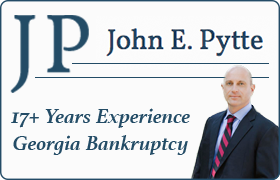Tybee Island Bankruptcy & Debt Lawyer, Georgia
Sponsored Law Firm
-
 x
x

Click For More Info:
-
John E. Pytte
617 Stevenson Ave Suite 102 Savannah, GA 31405 » view mapChapter 13, Chapter 7, Foreclosure Your Georgia Debt Relief Specialist
Bankruptcy has lost much of its once onerous meaning. The perception has changed largely because of the experience of thousands of people.
800-948-3470  John E. Pytte Savannah, GA
John E. Pytte Savannah, GAAttorney At Law - GA, 1995
University of Georgia School of Law
 Rebuild Credit
Rebuild CreditMost people choose to keep their personal property and just include the loan in their Chapter 13 plan.
Kathleen Horne
Environmental Law Other, Bankruptcy, Bankruptcy & Debt, Personal Injury
Status: In Good Standing
Jay Paul Jacobs
Bankruptcy, Divorce & Family Law, Estate, Wills & Probate, Power of Attorney
Status: In Good Standing Licensed: 48 Years
Jeremiah Brook Gastin
Landlord-Tenant, Wrongful Termination, Bankruptcy, Bankruptcy & Debt
Status: In Good Standing Licensed: 10 Years
Stephen F. Greenberg
Real Estate, Estate, Bankruptcy, Bankruptcy & Debt
Status: In Good Standing Licensed: 49 Years
David Michael Conner
Dispute Resolution, Workers' Compensation, Corporate, Credit & Debt
Status: In Good Standing
James L. Drake
Credit & Debt, Bankruptcy, Bankruptcy & Debt
Status: In Good Standing Licensed: 50 Years
William T. Daniel
Real Estate, Insurance, Corporate, Credit & Debt
Status: In Good Standing Licensed: 46 Years


 John E. Pytte Savannah, GA
John E. Pytte Savannah, GA Rebuild Credit
Rebuild Credit
